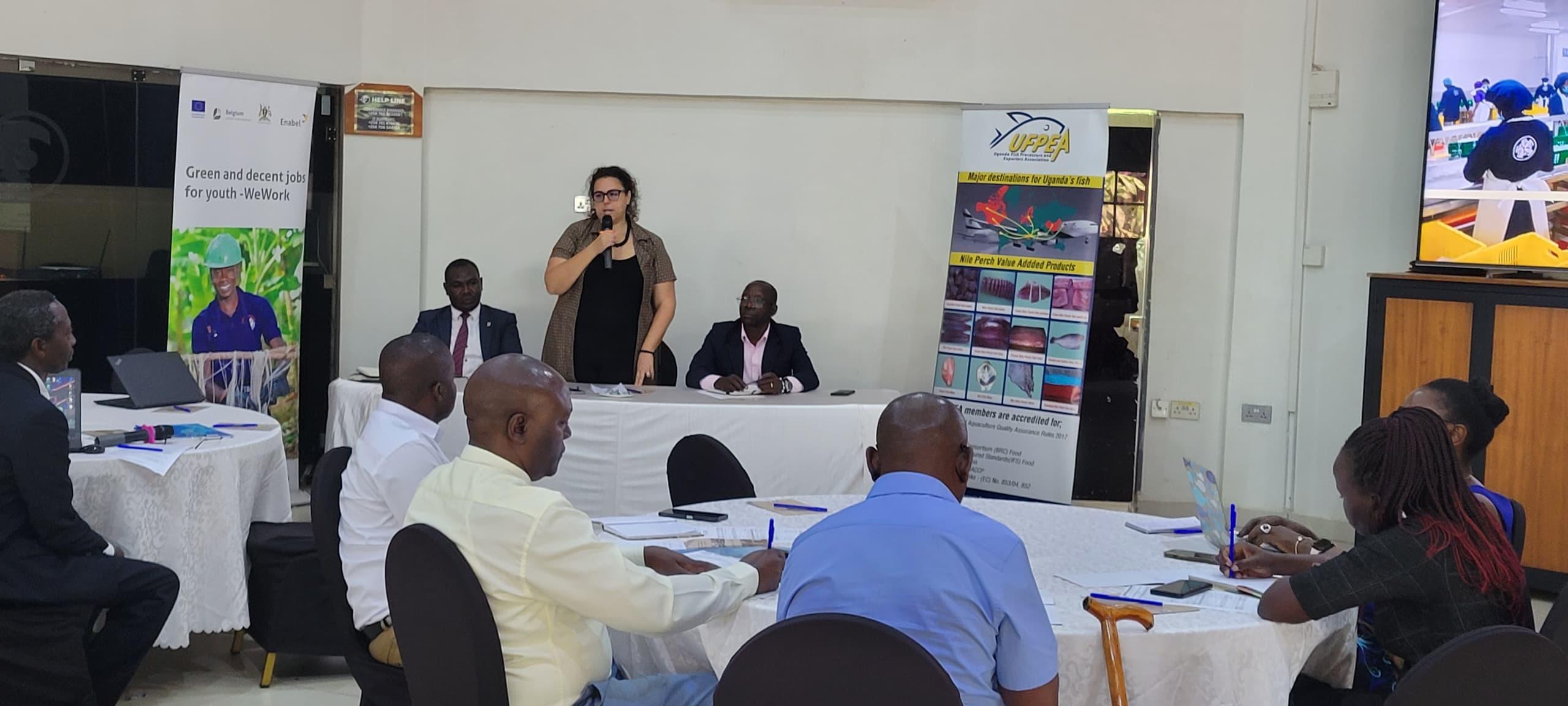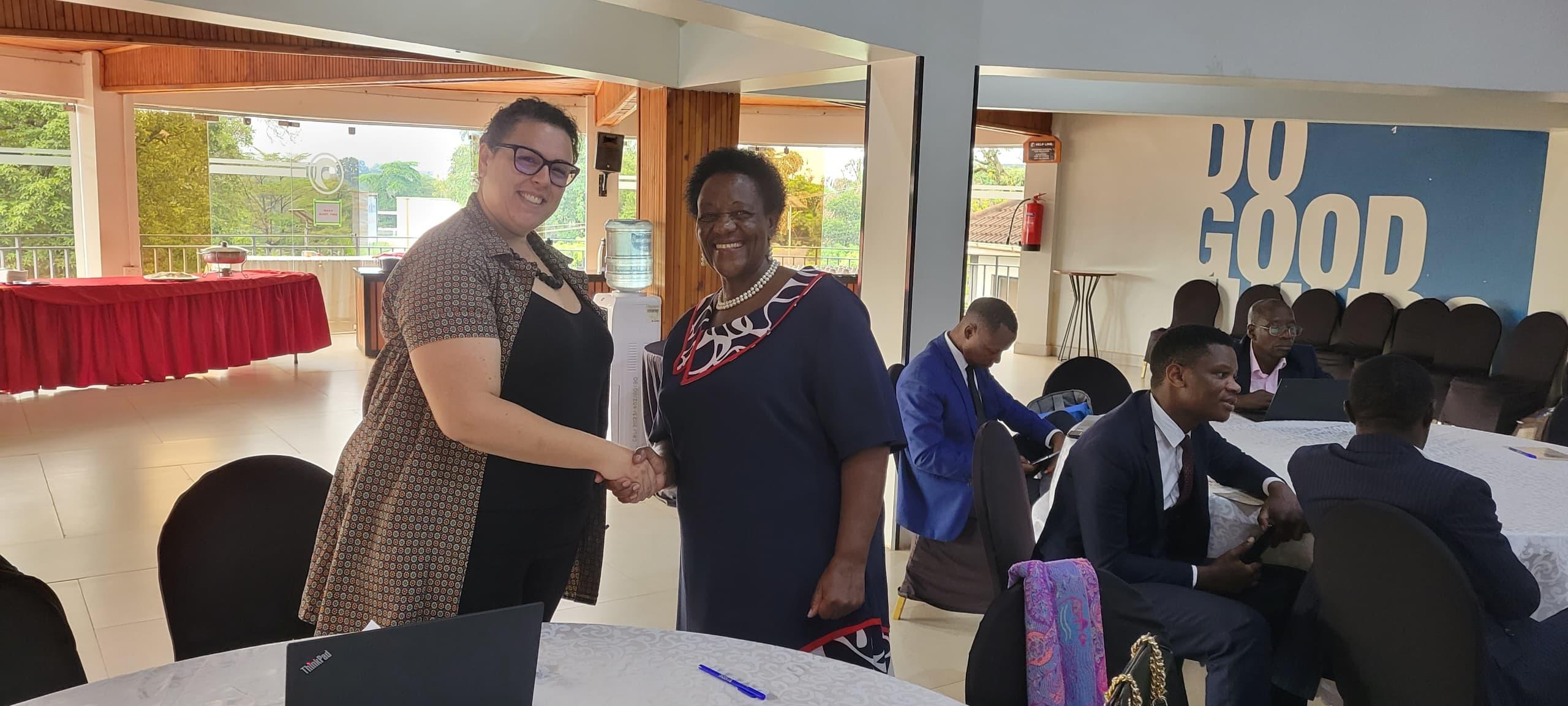Enabel backs review of fisheries regulations to promote sustainable fishing in Uganda
Enabel facilitated a two-day workshop in Kampala on
April 29 and 30, where key players in Uganda’s fisheries sector gathered to
review the country’s draft Fisheries and Aquaculture Regulations.
The workshop
was organised by the Uganda Fish Processors and Exporters Association (UFPEA)
and it brought together participants from government, the private sector,
fishing communities, and development partners.
The draft regulations are part of efforts to implement
the Fisheries and Aquaculture Act of 2023 and align with the 2018 national
policy. They aim to address illegal fishing, protect aquatic ecosystems, and
improve livelihoods in fishing communities.
Valentina Moltisanti, an Agribusiness and Green Agriculture
Expert at Enabel, said that Enabel was pleased to support the review as part of
its broader work of promoting green and inclusive job creation.
“The fish value chain was identified as a priority for
the Busoga region because of its strong potential to create decent jobs for
youth and women,” she said. She added that Enabel’s support aligns with
Uganda’s Development Agenda, which recognizes the fisheries sector as a major
contributor to GDP, employment, and food security.
Participants stressed the urgency of the reforms,
citing figures that show Uganda loses more than Shs5.5 trillion each year due
to illegal fishing, with much of the trade flowing through unregulated routes
such as the Mpondwe border point. These losses undermine both the national
economy and the sustainability of fish stocks.
State
Minister for Fisheries, Hellen Adoa, emphasized the need for strong enforcement
mechanisms and adequate funding to ensure sustainable management of the sector.
The Chief Executive Officer of UFPEA, William M.
Tibyasa thanked Enabel for its support, noting that the workshop came at a
critical time. He said the review process provided a valuable opportunity for
stakeholders to shape regulations that address key concerns in the sector and
improve the quality of Uganda’s fish exports.
Participants also called for inclusive implementation
of the regulations, with meaningful involvement of women, youth, and minority
groups. The outcomes of the workshop will be submitted to the Directorate of
Fisheries Resources at the Ministry of Agriculture, Animal Industry and
Fisheries (MAAIF) for further action.
This initiative is part of Enabel’s WeWork Project,
which promotes green and decent jobs for youth across Uganda and reflects the
agency’s commitment to supporting sustainable and inclusive economic
development.
Laatste nieuws van dit project
Geen nieuws


